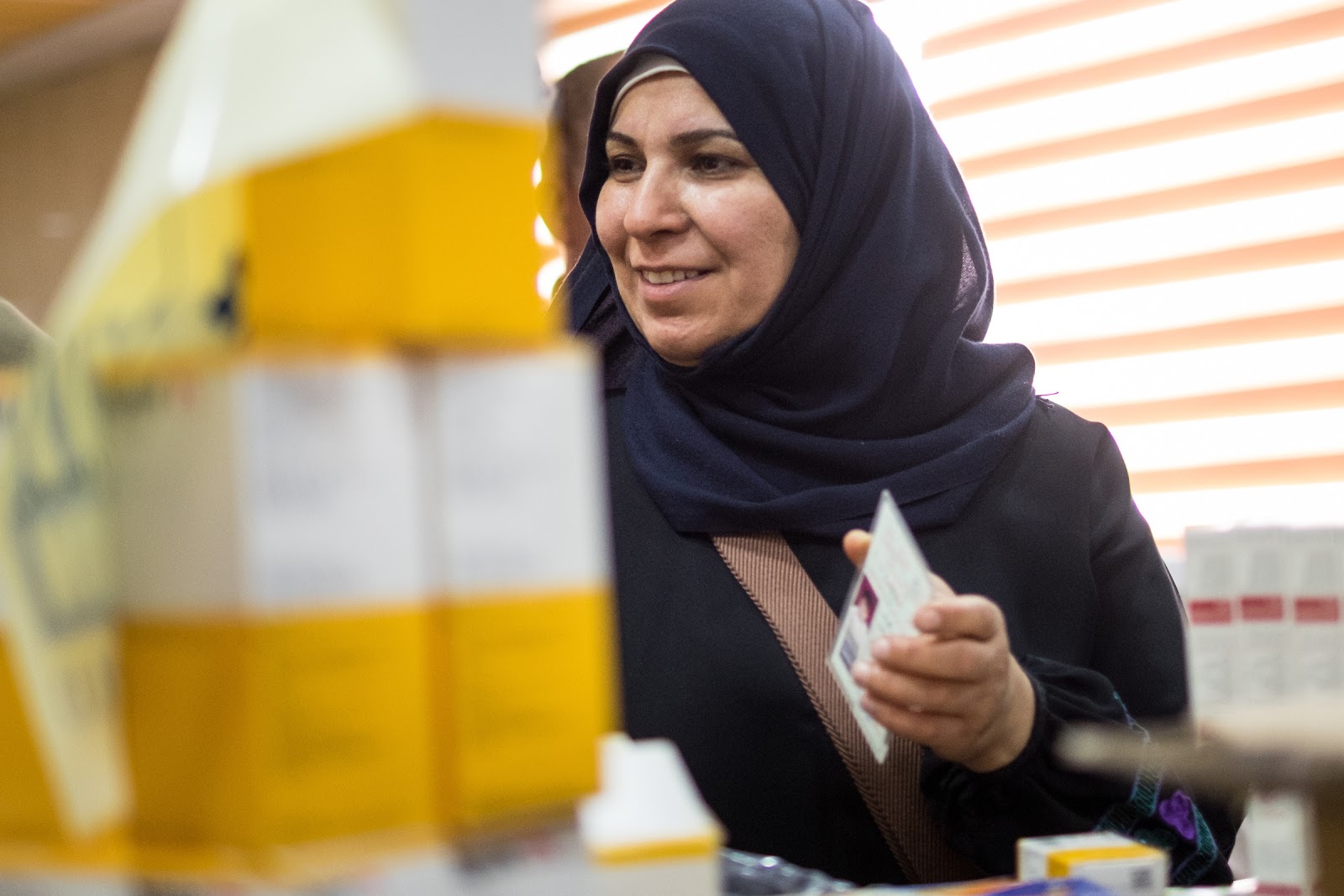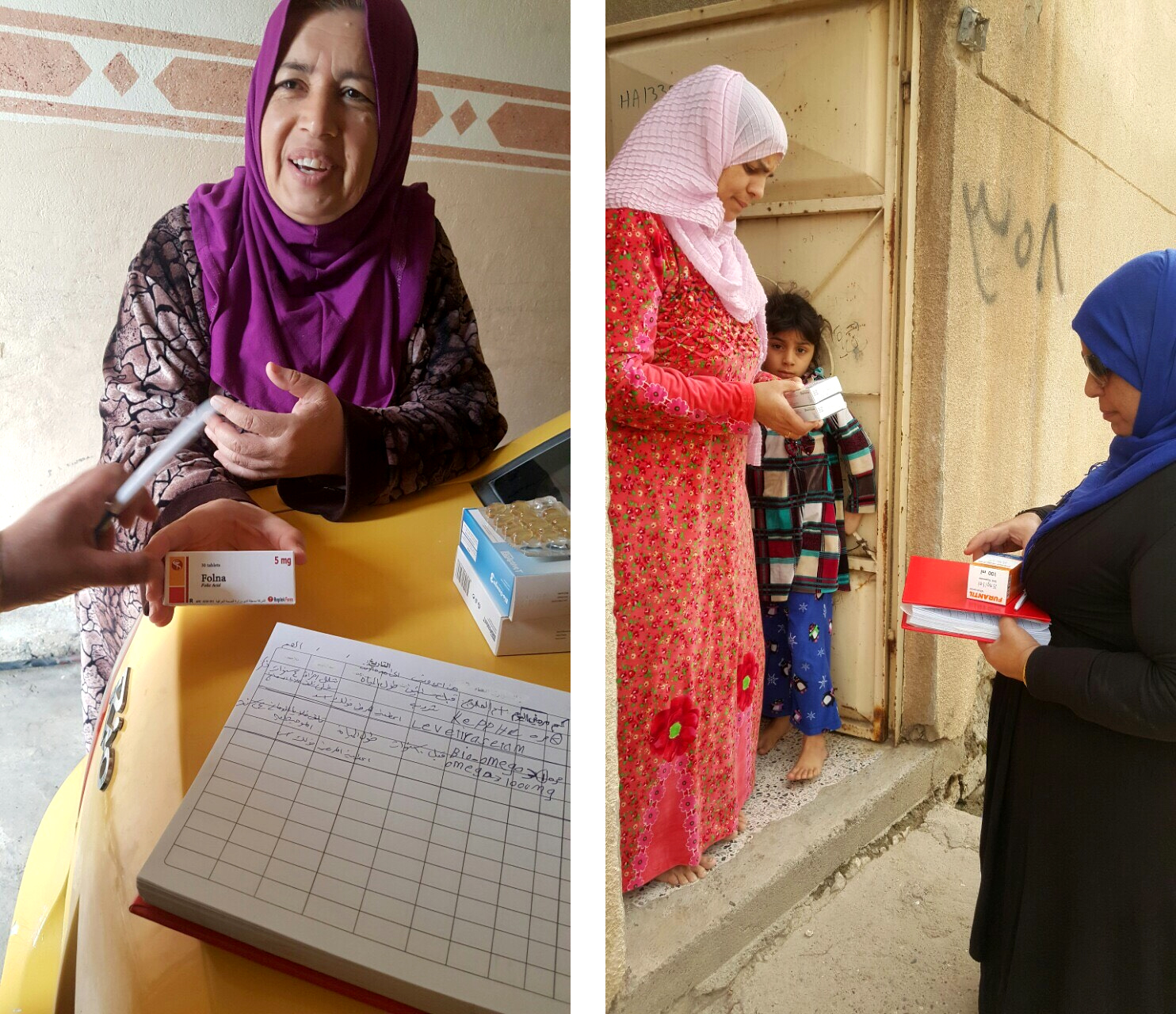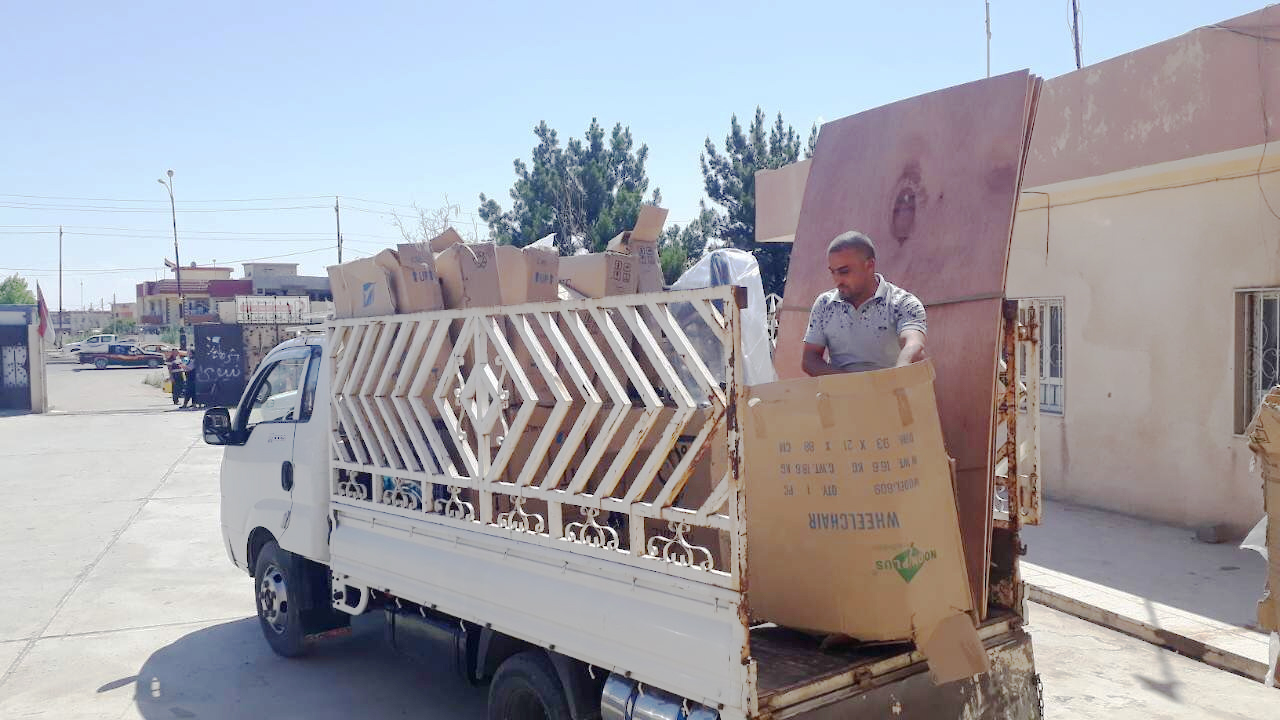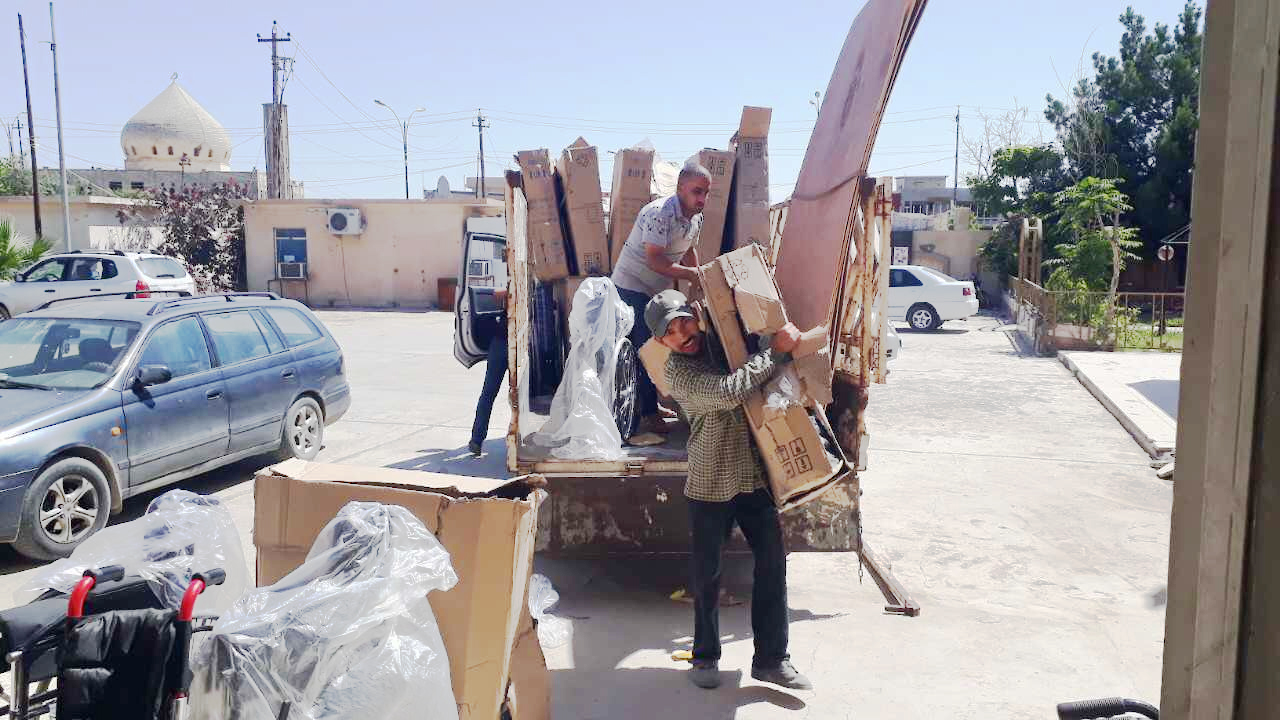If you were one of Mosul’s thousands of residents with mobility issues when ISIS took control in June 2014, your life became infinitely harder overnight.
Iraq was already a difficult place to live for those with disabilities, whether from birth or injury. There aren’t as many resources to help families here, and there certainly isn’t the civic infrastructure in place yet to help residents get around.

But under ISIS, your life was deemed worthless. Despite the fact that you were adored by your family, to ISIS you were a burden to society. They were not exactly proactive in assisting residents who needed to become more mobile and independent.
Many families with disabled relatives stayed in Mosul during ISIS control, simply because they didn’t have the physical ability to flee. These same residents were unable to leave when the devastating battle to liberate Mosul destroyed whole blocks around them.
Many have gone without wheelchairs for years, or they are using old, broken models that barely hold their bodies upright. They spend their days at home, reliant on family to move from one room to another.
Even now that wheelchairs are more available, families who need to rebuild their homes and lives just can’t afford to buy them or other supplies that make for a dignified life.
Many with disabilities in Mosul say they feel forgotten, as seen in this video shared by VOA yesterday:
You did not forget them, though.
As Mosul was liberated, one neighborhood at a time, you moved through the city—renovating, equipping, and staffing medical clinics in areas where there was no other healthcare available. You created a bridge for Mosul residents, providing medical support until the government can take over the facilities.
This isn’t a feeble rope bridge you’ve created. You are supporting primary medical centers that function as community hubs. The medical staff care for their patient’s physical symptoms as well as their dignity.
And they immediately recognized the need for good, well-fitting wheelchairs for their patients with disabilities. Recently, you responded to that need.

First, medical teams visited the homes of their patients, to determine what they needed to be well. They prescribed medication, which they were able to give on the spot. But they also “prescribed” wheelchairs, toileting aids, and other essentials—and you filled that prescription.
One day in May, patients from across Mosul came to one of the few wheelchair-accessible health centers functioning in the entire city, and you met them at their point of need.


You provided correctly-sized wheelchairs to Asmaa (who you met yesterday) as well as 51 adults and 40 kids.
You provided 81 toilet chairs for those unable to use traditional floor-level toilets (which are common in this part of the world), 11 air mattresses for ulcers, diapers as needed for adults and children, as well as further medication.
It was a big day for these families. Their loved ones were seen. They were given the dignity they deserve.
They were given supplies to keep them healthy and infection-free. And they were given a measure of mobility and independence that some of them haven’t experienced in years.
In the coming days you, will get to meet more of the local residents who received wheelchairs. Stay tuned.

